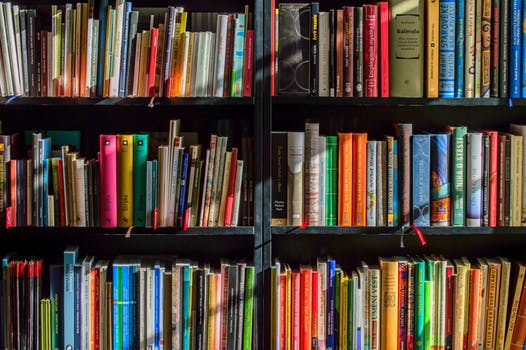There tend to be a lot of summer reading lists, but what about winter reading? When the weather gets frigid, there’s nothing better than curling up on the couch with a good book. Here are seven great books in translation published in 2017 that I’m excited to recommend to you as the days get shorter.
The Accusation: Forbidden Stories from Inside North Korea by Bandi. Translated from the Korean by Deborah Smith. Grove Press, 2017.
The story of how this manuscript, published pseudonymously, was smuggled out of North Korea is a epic tale of its own. The characters in these seven stories struggle with an omnipresent, oppressive government. A son cannot visit his dying mother because he is refused a travel permit. An elderly couple and their grandchild are interminably delayed in an overcrowded train station because a visit from Kim Il-sung has rerouted the trains. A decorated war veteran realizes that the brotherhood and equality of the communist society he fought for are nothing but lies. The writing pulls no punches, to the point of being a bit heavy-handed at times. Surely this determined North Korean writer had very limited access to literary models, and the evocative imagery, vividly poetic language, and psychological power of the writing, which come through clearly in Deborah Smith’s excellent translation, are a tour de force.
Out in the Open by Jesús Carrasco. Translated from the Spanish by Margaret Jull Costa. Riverhead Books, 2017.
The protagonist of this gripping debut novel is simply called “the boy,” and he is fleeing menacing pursuers through a desolate landscape. The time and place are also unidentified, but the writing is sharp and specific, with carefully observed descriptions of physical details and states of mind that are captured in Margaret Jull Costa’s fine translation. Carrasco describes a harsh world in which survival is painfully eked out. A best-seller in Spain, this novel expresses a grim outlook, but the silent companionship of the boy and a goatherd, as well as the beauty of the writing, show that all hope is not lost.
Orianna Fallaci: The Journalist, the Agitator, the Legend by Cristina De Stefano. Translated from the Italian by Marina Harss. Other Press, 2017.
I hadn’t previously heard of Orianna Fallaci, this riveting figure of Italian and world journalism. To say she wasn’t afraid to speak her mind is an understatement. When Ayatollah Khomeini responded to her criticism of the status of women in Iran during a 1979 interview by telling her that Islamic dress was only for respectable women and she did not have to follow it, she yanked the chador from her head, saying, “since you said so, I’m going to take off this stupid, medieval rag right now.” Born in Florence in 1929, as a child she helped the anti-Fascist resistance by smuggling hand grenades in heads of lettuce. Her interviews were just as explosive.
Life of a Bishop’s Assistant by Viktor Shklovsky. Translated from the Russian by Valeriya Yermishova. Dalkey Archive, 2017.
This strange little novel is a fictional biography of an 18th-century historical figure, Gavriil Dobrynin, written by a leading theorist of the Formalist movement in Russia in the 1920s. Shklovsky describes Dobrynin’s tactics for getting ahead in the world of the Russian clerical bureaucracy in the time of Catherine the Great. Dobrynin gives his boss and his cronies a run for their money, as they keep busy feasting and getting drunk, kicking and torturing one another, or pilfering money and accepting bribes (the bishop even posts a list of his going rates for bribery!). Shklovsky’s deadpan irony, along with all the ins and outs of these religious institutions, are skillfully conveyed by Valeriya Yermishova’s translation.
Three Days and a Life by Pierre Lemaitre. Translated from the French by Frank Wynne. MacLehose Press, 2017.
Crime fiction bloggers have been somewhat disappointed that this novel does not pack the same kind of thrills as the novelist’s previous books. Instead, its plot moves briskly with the power of psychological drama and long-held secrets. An accidental act of violence committed as a child threatens to haunt the adult life of the protagonist, Antoine Courtin. Trained as a psychologist, Lemaitre examines both Antoine’s inner turmoil and the way of life in a small French town rocked by economic troubles and painful loss. Kirkus reviews called it “a feverish, wickedly entertaining work” (but beware, the Kirkus review contains spoilers!).
The Golden Cockerel and Other Writings by Juan Rulfo. Translated from the Spanish by Douglas J. Weatherford. Deep Vellum, 2017.
This novella by the influential Mexican writer Juan Rulfo has appeared in English for the first time on the hundredth anniversary of his birth. It’s accompanied by short pieces and fragments that are also newly translated. Rulfo brings a Mexican village to life, sketching the absurdity and humor of human endeavors, and suddenly wringing emotion from a single telling detail. His writing remains enjoyably buoyant, despite the darkness of the subject matter, which is often focused on death. It’s easy to see why this author is said to have inspired Gabriel García Márquez.
Beyond the Rice Fields by Naivo. Translated from the French by Allison M. Charette. Restless Books, 2017.
This book also represents a first: it’s the first novel from Madagascar to be translated into English. This sweeping panorama of 19th-century life is centered on the lives of Tsito, a slave, and Fara, his master’s daughter. Their love story is disrupted by the arrival of British Christian missionaries and French industrialists, and the point of view shifts between Tsito and Fara as they are separated and reunited through several dramatic twists and turns. The dense narrative widens to accommodate the violent and shocking events of Madagascar’s colonial history. Allison Charette has done a masterful job translating Naivo’s epic novel, which is rife with specific cultural and historical details, into English.

